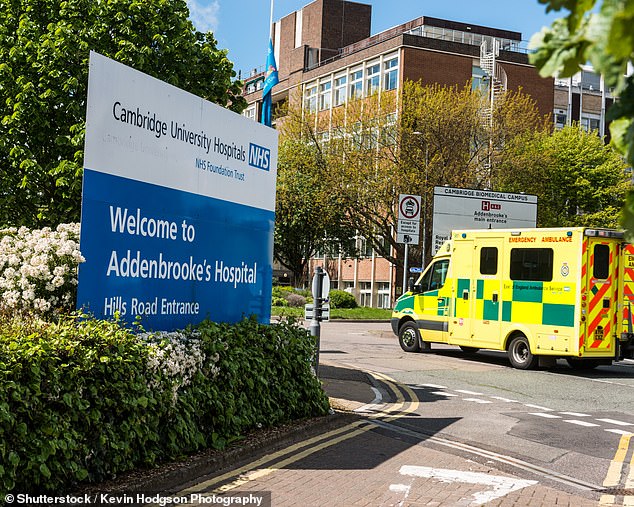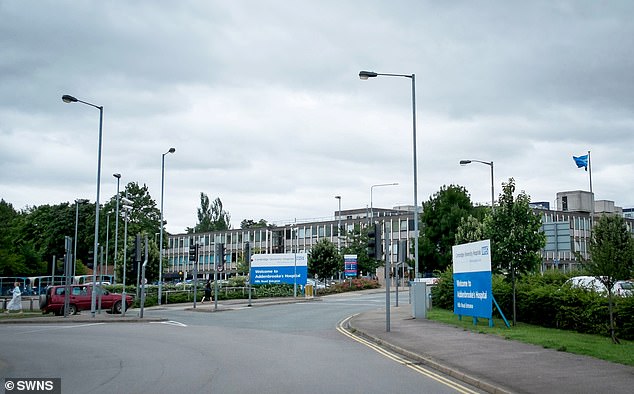Patient, 24, refused care by his NHS GP, dies of skin cancer after failing to pay £65 for private test
A coroner has issued a warning after a 24-year-old man died of skin cancer following his decision not to pay for a private medical test that could have detected the disease.
Gregor Lynn went to his GP in 2019 complaining of a 'nuisance' lesion on the back of his neck, but was told it did not meet the health service's criteria for further investigation.
He then paid £140 to have it removed privately, but opted not to cough up the extra £65 to have samples sent for analysis to see if it was malignant – a procedure that would have been free on the NHS, as emerged from a judicial investigation.
About 14 months later, while still bothered by the lesion, Mr Lynn returned to his GP and was referred to a specialist who diagnosed him with skin cancer.
Sadly, scans showed the disease had already spread and despite treatment he died just over two years later at Addenbrooke's Hospital in Cambridge.

Gregor Lynn died at Addenbrooke's Hospital in Cambridge two years after he was diagnosed with skin cancer. Pictured: the Hills Road entrance to Addenbrooke's Hospital
Assistant coroner for Cambridgeshire and Peterborough Caroline Jones has now written to the NHS and Department of Health to express her concerns about the case.
In her Prevention of Future Deaths report, she said that while she could not conclude that a laboratory test in 2019 would have detected his cancer, she was concerned that the cost of the analysis had prevented it from taking place.
The extra costs deter patients who are forced to go to the private clinic because they do not qualify for NHS care, she said.
“It is concerning that the barrier to undergoing a full procedure, including histological analysis, appears to be a cost barrier,” she said.
'Anecdotal evidence received on inquiry from treating physicians was that further costs associated with histological or other examination, which the NHS stated would be routinely included in the procedure at no cost to the patient, provided a general disincentive to patients who would regularly choose not to do this. to have further tests carried out.
'Whilst it is recognized that there should be criteria for routine and non-urgent procedures to be carried out on the NHS, my concern is with the disparity in what is included in the treatment when carried out privately (where histological analysis is a separate and additional research). costs) and what is routinely included as part of NHS treatment.
'It therefore seems to me that there is a risk of future deaths if patients who do not meet NHS referral criteria, who have to pay for procedures to be carried out privately, choose for cost reasons not to have the histological analysis carried out which would otherwise would be provided. free of charge to the NHS, because it is an established fact that earlier detection and treatment is crucial in minimizing the risks of developing metastatic cancers, including melanoma.”
The inquest in August heard that Mr Lynn first went to his GP in March 2019.


Pictured: A general view of the entrance to Addenbrooke's Hospital, where Mr Lynn died
“He had developed a lesion on the back of his neck which was excised privately, but the excised material was not sent for histological analysis, probably due to the additional costs associated with having the samples analyzed privately,” Ms Jones said.
'The consequence of Gregor not meeting the referral criteria for NHS treatment on initial presentation with a bothersome lesion at the back of his neck was that he had to refer himself for private treatment at a reported cost of approximately £140.
'He was advised that the additional cost for histological analysis of the excised samples would be approximately £65 and therefore decided not to have the samples sent for analysis.
'When the lesion continued to bother him in May 2020, he returned to his GP, who referred him to dermatology, where a further excision was performed and analyzed and it was found to be melanoma.
'An ultrasound showed that the melanoma had spread to his lymph nodes, chest wall and lungs.
'Despite immunotherapy and targeted oral therapy, the melanoma continued to spread and in June 2022 scans showed that it had spread to Gregor's brain to such an extent that his condition was terminal.
'He was placed on a palliative care pathway and following an admission to Addenbrooke Hospital on July 6, 2022, he died on July 8, 2022.'
Mrs Jones returned a verdict of death from natural causes.
The Department of Health, NHS England and Cambridgeshire and Peterborough Integrated Care System have until February 14 to respond to her concerns.
